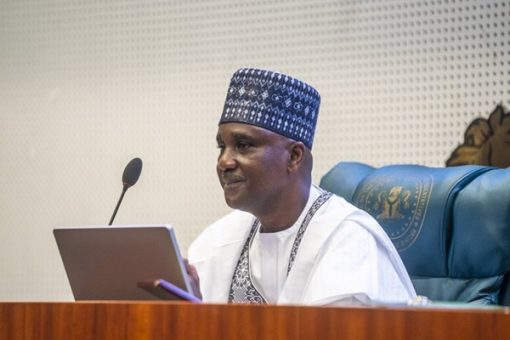The Speaker of the House of Representatives has raised concerns over Nigeria’s porous borders, warning that the country’s security is increasingly tied to developments in neighbouring West African nations.
Speaking at a lecture delivered to Course 33 participants of the National Defence College, in collaboration with the Royal College of Defence Studies (RCDS), the Speaker emphasized the urgent need for stronger national unity and cross-border collaboration.
He noted that Nigeria’s open and poorly secured borders allow insecurity and instability from surrounding countries to spill into its territory. This, he argued, makes it critical for Nigeria to support joint patrols, regional security initiatives, and cross-border cooperation to bolster resilience both within and beyond its borders.


In his lecture titled “National Resilience and Security in the 21st Century,” the Speaker explained that national security and resilience are no longer confined to individual countries. Instead, they are shaped by regional dynamics, especially within ECOWAS and across Africa.
He highlighted widespread security challenges on the continent, such as insurgencies in the Sahel, political crises in countries like Mali, Guinea, Burkina Faso, and Niger, and vulnerabilities exposed by health emergencies like Ebola and COVID-19, alongside climate-related impacts.
Despite these difficulties, he praised African nations for their adaptability, referencing successful examples of post-conflict recovery in countries like Rwanda and Sierra Leone. He pointed to the African Development Bank’s 2022–2026 strategy, which promotes strengthening institutions and communities as a means of building collective resilience.


The Speaker also outlined the efforts of the African Union and ECOWAS, including early warning systems, peacekeeping missions, and regional development initiatives such as the Great Green Wall and drought resilience plans. He recalled ECOWAS’s history of interventions in Liberia, Sierra Leone, and The Gambia, which demonstrated the region’s capacity for collective action in times of crisis.
He warned, however, that the recent wave of military coups in the sub-region has put constitutional governance to the test, leading to sanctions, diplomatic interventions, and proposals for a regional standby force to deter unconstitutional changes in government.
Beyond security, he highlighted economic integration efforts such as a proposed common currency, solidarity funds, and joint health procurement initiatives — especially during the pandemic — as vital tools for regional stability.

He outlined a three-phase model for an effective national resilience strategy:
- Mitigation – through proactive actions like improved infrastructure, deradicalization programs, and conflict prevention diplomacy.
- Adaptation – recognizing that not all shocks are preventable, and preparing with measures like drought-resistant agriculture and diversified energy systems.
- Recovery – rebuilding affected communities and systems through emergency response, infrastructure restoration, and economic revitalization, while learning from past crises.
He concluded by stressing that these phases must function in a continuous cycle — where every recovery effort shapes improved future planning — to ensure lasting resilience and security.




